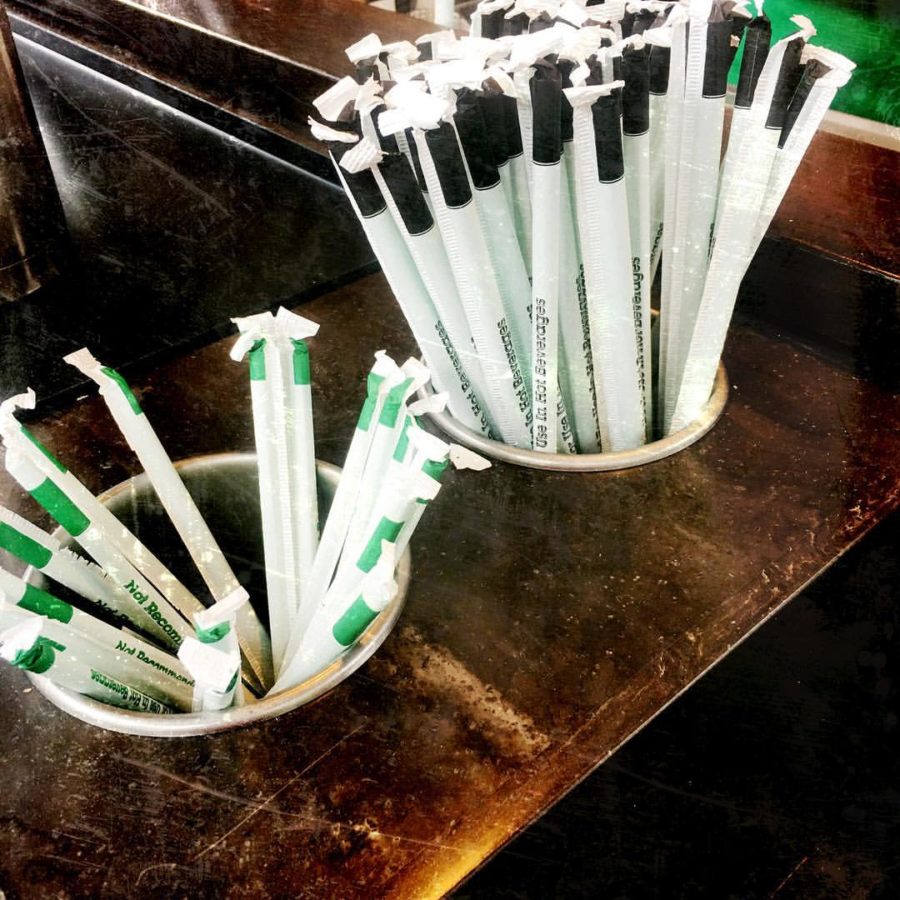The plastic straw withdraw
Plastic straws will soon be leaving popular chain restaurants like Starbucks and McDonalds.
September 4, 2018
Recently, Seattle has taken precaution and is now the first city in the U.S. to ban the production of plastic straws and utensils. Some people found this decision repulsive, but I found it reassuring that the U.S. will improve its environmental sustainability.
Social media influencers and big companies have backed this decision and encouraged people to remove plastic straws from their everyday lives. Seattle’s native coffee chain, Starbucks, has also taken the initiative to eliminate straws from their stores and will be officially lid only by 2020. These commitments have sparked a debate on whether or not the protest is necessary for salvaging our Earth’s oceans and preserving marine life.
“I don’t really get the whole ban against them or why they catch so much heat,” said senior Nick Kemper. “They are a very useful tool. They allow you to sip things.”
Straws are a necessary item for some elderly and disabled people. They can also be helpful for younger children. However, for the average person, going straw-less is certainly a reasonable option and one that I will personally be pursuing.
“I think that if we are going to ban plastic straws we need to also get rid of plastic cups and lids too because we can still throw out plastic cups, and they would still be littered into our oceans,” said junior Sienna Syverson. “We should focus on the whole issue and not just part of it.”
Another massive business, McDonalds, has officially told shareholders their goal is to replace all guest packaging (including straws) to renewable, recycled or certified sources by 2025. Unlike Starbucks’ goal of only going strawless, McDonald’s would like their whole guest package to be renewable. They have already taken steps to phase the product out in the McDonald’s locations across the UK, according to BBC.
This fashionable global protest of plastic straws appeared a few years ago. Eliminating the usage of plastic straws could aid in the reduction of plastic waste in our oceans; however, the straws in our ocean account for a very small portion of the plastic mass already existing.
The mass of plastic waste continues to get larger every year. In fact, there are many plastic products that could be far more beneficial for businesses, cities and eventually entire countries to replace. While replacing straws with more eco-friendly options is a good start, we need to start implementing replacement of other items like plastic bags, packaging and more.
My goal is to make my ecological footprint as limited as possible; therefore, I jump at new opportunities like this. After hearing about this global trend, I decided it was time for me to suck it up and try to successfully make this small change happen in my own life. I realize that movements like this are never successful if only one person takes action, but if we collectively agree to accomplish projects like this our world could see a lot of positive change.








